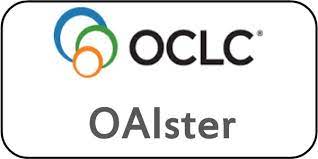Efficacy and Safety of Stomatab Capsules® in Improving Oral Health in Recurrent Aphthous Stomatitis: An Open-labeled Clinical Study
Keywords:
Polyherbal, oral mucosa, ulcer size, ulcer symptom score, Jasminum grandiflorum, Mimusops elengi, Ficus religiosa, Red ochreAbstract
Background: Recurrent aphthous stomatitis (RAS) is a common ulcerative disease of the oral mucosa, which is difficult to treat. In Ayurveda, several medicinal plants have been evaluated for their anti-inflammatory and antioxidant effects in many oral diseases as an alternative for modern medicines. Method: A study with open-label, non-comparative single-arm design was conducted to evaluate the efficacy of “Stomatab” capsules in improving oral health in 30 subjects with RAS. The secondary objectives were to assess the improvement in oral health and tolerability of the herbal formulation. Subjects were instructed to take one capsule thrice daily after meals for 14 days. Patients were evaluated at three assessment points: screening and baseline (Visit 1, Day 0) with follow-ups done at Visit 2 (Day 5 ± 2) and Visit 3 at the end of the study (Day 14 ± 2). Results: There was a significant reduction in the mean ulcer size from 3.66 ± 1.27 mm (V1) to 0.64 ± 0.78 (V3). The mean number of ulcers reduced from 1.97 ± 0.72 (V1) to 0.90 ± 0.66 (V3). Significant improvement in ulcer-related symptoms of pain (Ruja), burning sensation (Daha) and redness (Raktavarnata) was noted. The total ulcer symptom scores decreased from 7.67 ± 2.38 (V1) to 0.63 ± 0.56 (V3). No side effects were reported by the study participants. Conclusion: These results show that the polyherbal formulation “Stomatab” capsule is safe and effective for the treatment of RAS.
Downloads
Published
Issue
Section
License
All open access articles published in IJCP are distributed under the terms of the CC BY-NC 4.0 license (Creative Commons Attribution-Non-Commercial 4.0 International Public License). This license permits unrestricted use, distribution, and reproduction of the articles in any medium for non-commercial purposes, provided that: The original authorship is properly and fully attributed. The IJCP is cited as the original place of publication with correct citation details. If an original work is reproduced or disseminated in part or as a derivative work, this must be clearly indicated. No articles are reproduced for commercial use without prior consent from the IJCP. All licensing requests and permissions for commercial use will be managed by the Publisher.










